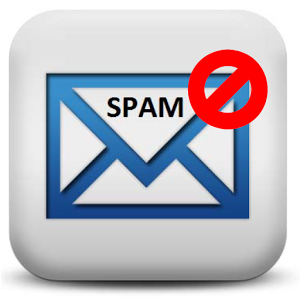Saturday
Apr022011
Tivo database hacked?
 Saturday, April 2, 2011 at 2:57PM
Saturday, April 2, 2011 at 2:57PM
Tivo looses customer database of email addresses as addressed in a letter to customers...

TiVo® Service Announcement
Dear TiVo Customer,
Today we were informed by our email service provider that your email address was exposed due to unauthorized access of their system. Our email service provider deploys emails on our behalf to customers who have opted into email-based communications from us.
We were advised by our email service provider that the information that was obtained was limited to first name and/or email addresses only. Your service and any other personally identifiable information were not at risk and remain secure.
Please note, it is possible you may receive spam email messages as a result. We want to urge you to be cautious when opening links or attachments from unknown third parties.
We regret this has taken place and apologize for any inconvenience this may have caused you. We take your privacy very seriously, and we will continue to work diligently to protect your personal information.
If you have unsubscribed in the past, there is no need to unsubscribe again. Your preferences will remain in place.
Sincerely,
The TiVo Team
UPDATE 04/04/11: The email company that handles Tivo's Accounts also handles many others including Best Buy:
Dear Valued Best Buy Customer,
On March 31, we were informed by Epsilon, a company we use to send emails to our customers, that files containing the email addresses of some Best Buy customers were accessed without authorization.
We have been assured by Epsilon that the only information that may have been obtained was your email address and that the accessed files did not include any other information. A rigorous assessment by Epsilon determined that no other information is at risk. We are actively investigating to confirm this.
For your security, however, we wanted to call this matter to your attention. We ask that you remain alert to any unusual or suspicious emails. As our experts at Geek Squad would tell you, be very cautious when opening links or attachments from unknown senders.
In keeping with best industry security practices, Best Buy will never ask you to provide or confirm any information, including credit card numbers, unless you are on our secure e-commerce site, www.bestbuy.com. If you receive an email asking for personal information, delete it. It did not come from Best Buy.
Our service provider has reported this incident to the appropriate authorities.
We regret this has taken place and for any inconvenience this may have caused you. We take your privacy very seriously, and we will continue to work diligently to protect your personal information. For more information on keeping your data safe, please visit:
http://www.geeksquad.com/do-it-yourself/tech-tip/six-steps-to-keeping-your-data-safe.aspx.
Sincerely,
Barry Judge
Executive Vice President & Chief Marketing Officer
Best Buy
TiVo® Service Announcement
Dear TiVo Customer,
Today we were informed by our email service provider that your email address was exposed due to unauthorized access of their system. Our email service provider deploys emails on our behalf to customers who have opted into email-based communications from us.
We were advised by our email service provider that the information that was obtained was limited to first name and/or email addresses only. Your service and any other personally identifiable information were not at risk and remain secure.
Please note, it is possible you may receive spam email messages as a result. We want to urge you to be cautious when opening links or attachments from unknown third parties.
We regret this has taken place and apologize for any inconvenience this may have caused you. We take your privacy very seriously, and we will continue to work diligently to protect your personal information.
If you have unsubscribed in the past, there is no need to unsubscribe again. Your preferences will remain in place.
Sincerely,
The TiVo Team
UPDATE 04/04/11: The email company that handles Tivo's Accounts also handles many others including Best Buy:
Dear Valued Best Buy Customer,
On March 31, we were informed by Epsilon, a company we use to send emails to our customers, that files containing the email addresses of some Best Buy customers were accessed without authorization.
We have been assured by Epsilon that the only information that may have been obtained was your email address and that the accessed files did not include any other information. A rigorous assessment by Epsilon determined that no other information is at risk. We are actively investigating to confirm this.
For your security, however, we wanted to call this matter to your attention. We ask that you remain alert to any unusual or suspicious emails. As our experts at Geek Squad would tell you, be very cautious when opening links or attachments from unknown senders.
In keeping with best industry security practices, Best Buy will never ask you to provide or confirm any information, including credit card numbers, unless you are on our secure e-commerce site, www.bestbuy.com. If you receive an email asking for personal information, delete it. It did not come from Best Buy.
Our service provider has reported this incident to the appropriate authorities.
We regret this has taken place and for any inconvenience this may have caused you. We take your privacy very seriously, and we will continue to work diligently to protect your personal information. For more information on keeping your data safe, please visit:
http://www.geeksquad.com/do-it-yourself/tech-tip/six-steps-to-keeping-your-data-safe.aspx.
Sincerely,
Barry Judge
Executive Vice President & Chief Marketing Officer
Best Buy




